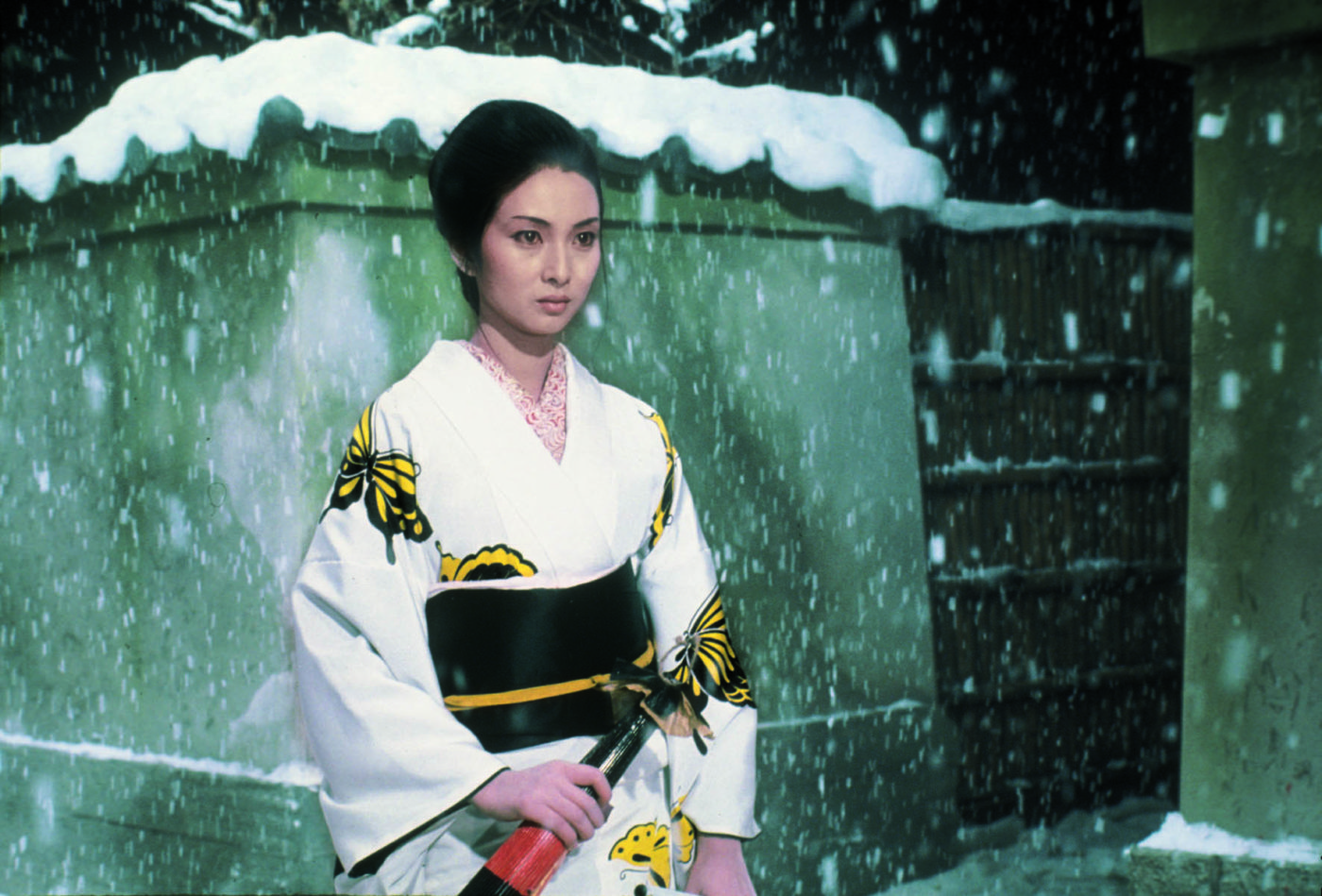Yuki — or Lady Snowblood, as she’s known — was born to fulfill her mother’s quest for vengeance against the people who killed her husband and son and raped her repeatedly. Yuki was raised with this singular mission in mind and while she often works as an assassin, it’s all in pursuit of her family’s terrible legacy.

Lady Snowblood is fun. Given the subject matter, that feels like a strange thing to say, but that was my immediate reaction.
Yes, the manga written by Kazuo Koike and illustrated by Kazuo Kamimura is essentially 50% sex and 50% violence but it’s a wild, exciting ride. Koike’s plot is focused and direct, even with all the excuses he makes to get Yuki into bed with some predatory women (it’s that kind of comic). Kamimura’s art is gorgeous and there are so many amazing silent sequences of pure, violent action. I found myself going over a few of them repeatedly because I was just that enthralled by the visual storytelling.
In Yuki, Koike and Kamimura have created a complex heroine. She is focused on getting revenge but she’s not without a sense of morality and sometimes compassion. She’s gorgeous (something characters often mention) and she definitely uses that to her advantage. She’s not admirable but she’s still someone I ended up rooting for.
In general, this is not my kind of comic but I had such a good experience reading it. I was surprised by that.
(I do have to note that beyond the abundance of sex in this, there is a fair share of rape. However, the comic definitely takes the position of “rape is bad.” Yes, that’s basically the least it can do, but I’m just saying I’ve read worse.)
I do have to admit I was slightly hesitant to watch Lady Snowblood (1973, directed by Toshiya Fujita) because I tend to not handle gore very well, even if it looks fake. Enough people assured me I’d be fine, though, so I did it.
Yes, all the blood in this looks incredibly fake. Yes, there is a lot of it, to an almost ridiculous degree. I was more annoyed by that, though, than grossed out. I did not love it, though, mostly because it was distracting.
That’s really my only major complaint about this movie, though.
Meiko Kaji is basically perfect as Lady Snowblood. She plays Yuki with such understanding — she’s a gorgeous woman with a look in her eyes like she’s a caged animal wanting to attack. Fujita’s stylish and stylized direction is all vibrant colors and trippy sequences. Don’t misunderstand me — this is still a super-violent movie about one woman’s focus on revenge made cheaply but the sense of artistry surprisingly elevates it into something more.
Norio Osada’s screenplay deviates from the original manga in a few understandable ways, excising several irrelevant characters and rearranging sequences, and streamlining the story (most of the extraneous sexual elements of the manga are gone, but that might be for other reasons).
It doesn’t all completely work, though, and a few of his changes I questioned. In the manga, after killing Hanzo (Banzo in the movie), Yuki tells his daughter he killed himself and also saves her from prostitution (this was also Yuki’s final kill). In the movie, Yuki kills Banzo much earlier and his daughter finds out the truth and seeks revenge. I understand that this story is all about generational trauma, but I liked Yuki’s mercy in the manga better.
I didn’t love the introduction of a vague love interest (or at the very least, a friend) with Ryurei Ashio (Toshio Kurosawa), who stands in for the older writer from the manga. I know that Yuki needed more people to interact with since this is a movie and it can’t just all be bloody kills, but it’s an essential part of her character that she doesn’t need help.
But I do think those things are just the nature of adapting a comic into another medium. They’re not changes I would have made, but I probably would have made other ones. I appreciated that Fujita and Osada grasped that for all the darker elements in Lady Snowblood, it is meant to be fun. And despite some of my reservations about it, this movie is, in the end, pretty much fun.
Fujita and Osada collaborated on a sequel in 1974, Lady Snowblood: Love Song of Vengeance, which also stars Kaji, but that was an original story and not based specifically on anything from the manga. In 2001, a (very loose, I assume) sci-fi adaptation was released called The Princess Blade. I’ll write about those on Patreon later this week.

